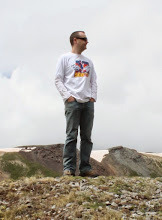One consequence of the change of regime at St Mary's is the freeing-up of the Official Site, which in recent weeks had become the home of propaganda that would make Goebbels proud and maybe a little jealous.
Webmaster and editor Graham Hiley, formerly of the (usually critical) Daily Echo, used to write a column on the official website called 'Hiley Controversial' when he'd have a rant about the team, the tactics and even the management. That vanished some time ago, along with balanced reporting, any sense of independence and, in the nearest thing to 'protest' that Hiley could manage, the withdrawal of his 'By Graham Hiley' line at the top of most articles. On Friday, the by-line re-appeared in the first post-Lowe article, and today the reappearance of 'Hiley Controversial' has allowed Hiley the opportunity to speak reasonably openly about the censorship he'd had forced upon him during the previous few weeks and months. As usual with Hiley, there's a lot to read and even more to read between the lines, but it's fairly clear: he, for one, is happy with the change, and that's a good sign as far as I can tell.
The whole thing reminded me of a strange event that occurred in late August of 1991. This was before the final break-up of the Soviet Union and Gorbachev was still in power. At the time, I'd bought a short-wave radio which brought the joys of dull international stations to my quiet teenage Devon life, and of these stations, the most dull (and most easily receivable) was Radio Moscow. Filled with news and documentary programmes about the history of Tatarstan farming and Siberian peat-burning, Radio Moscow seemed to serve one purpose: a sleep-aid, guaranteed addiction-free.
Then one day, sometime after I returned from a visit to Atlanta and sometime before the final Test Match of the summer against Sri Lanka, it was reported that President Gorbachev had been placed under house arrest by a communist-based group who had seized control of the Kremlin and therefore the former USSR in a swift coup. Immediately I turned on Radio Moscow to hear, to my surprise, classical music. A lot of it, without interruption. I kept listening as the BBC teletext service and UK-based radio stations continued to report details of the coup, and of Gorbachev's imprisonment, and eventually we reached the top of the hour. Station ident, stating of time in Moscow and UTC, and the news.
"And now, a news flash. According to the article 1277 of the USSR constitution, Vice-President of the USSR Gennadii Yanaev took office from Soviet President Mikhail Gorbachev because Gorbachev is unable to perform his Presidential duties for health reasons. At this time, Radio Moscow continues to bring you highlights from Tchaikovsky's Piano Concerto Number One in B-Flat minor..."
Over the following days the tension grew. We saw on television Boris Yeltsin rallying the crowds of Russians gathering outside the Russian (as opposed to Soviet) government buildings.
"The official Moscow news agency reports that President Gorbachev has been taken slightly ill while on holiday in Crimea, and will be delaying his return to Moscow. However, he is quite safe and well. A state of emergency has been declared in certain parts of the USSR according to article 1273 of the USSR constitution..."
We hear reports of Yeltsin wooing and commandeering the military to join the Russian side rather than the coup-leaders.
"There have been no defections," reported Radio Moscow, a defence ministry spokesman being interviewed. "These rumours have been spread to sow discord among the ranks."
President Yeltsin, with the support of regional CIS leaders, presents final demands to Yanaev and the coup leadership demanding their withdrawal from the Supreme Soviet, the removal of troops from Moscow and Leningrad and an immediate, personal visit with President Gorbachev. And, interestingly, the removal of restrictions on the Russian media. He stands on a tank in front of the Russian White House, publicly in defiance of the coup-plotters and their military stance. Thousands of Russians flock to his side, yielding support that never left him during his later years as President.
"We continue with Tchaikovsky's 'Nutcracker', Opus seventy-one."
The coup collapsed. The leaders fled. Gorbachev returned to Moscow, and Radio Moscow was suddenly free to report his words: "This is a great victory for perestroika." And before you knew it, we were back to the regular diet of farming reports, balalaika recitals and dubious ethnic conflicts on Radio Moscow, and I switched over to listen to RTL instead.
Of course, the problem was that within days, Yeltsin forced Gorbachev to dissolve the USSR and suddenly it was the Russian government who had taken over the Kremlin instead. Not that I'm suggesting that that's what will happen to Michael Wilde and co, just that they should watch it out for strange Russian men with white hair and rather-too-rosy cheeks.
Meantime Graham Wiley is back at the official Saints site, and don't you forget it.
Subscribe to:
Post Comments (Atom)

No comments:
Post a Comment